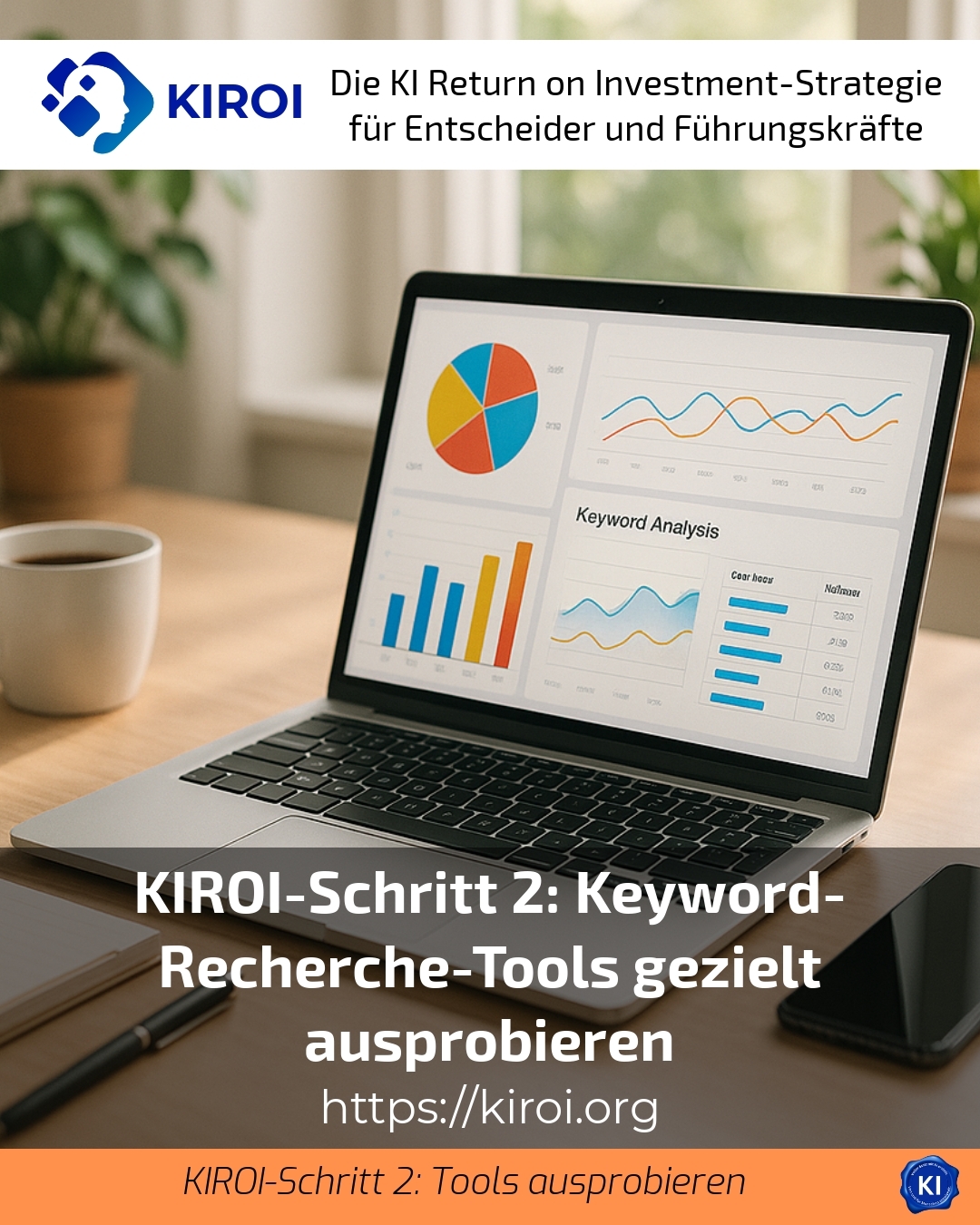Try out targeted keyword research tools: An important step in digital project management
Searching for suitable keywords is crucial for visibility in search engines and the success of digital projects. Many people come to me with the question of how they can select and use keyword research tools sensibly. In practice, it turns out that it's not about the perfect tool, but about trying out different applications in order to get as comprehensive a picture as possible of the relevant keywords.
Why keyword research tools should definitely be combined
Keyword research tools are often viewed in isolation, but the smart approach is to use them in combination. For example, if you only rely on a tool like KWFinder, you will miss out on valuable insights that SEMrush or Ahrefs can offer. SEMrush shines with extensive filter functions and large amounts of data, while KWFinder scores with its ease of use. Ahrefs, on the other hand, offers in-depth SERP analyses and a good overview of keyword difficulty.
The diverse functions make it possible to evaluate keywords not only in terms of their search volume, but also to precisely analyse search trends, competition and user intentions. Companies from a wide range of industries often report that they have been able to make better content and marketing decisions with such a combination.
KIROI Best Practice: Using a variety of tools
KIROI BEST PRACTICE at company XYZ (name changed due to NDA contract)
A technology-orientated service company used various keyword research tools in parallel during a project. They combined Google Keyword Planner for comprehensive search volume data, Ubersuggest for quick keyword ideas and SEMrush to carry out competitive analyses. This resulted in keyword lists that covered both generic terms and long-tail search queries. These lists supported the implementation of targeted SEO measures with measurable organic growth.
Trying out keyword research tools creates a data-based framework that helps to precisely address the individual challenges of an industry or project.
Important criteria when trying out keyword research tools
When testing various tools, users should ensure that other data is taken into account in addition to the search volume. For example, analysing keyword difficulty provides an insight into how difficult it is to rank well for a keyword, which is particularly important for smaller website operators. Analysing search trends is also helpful for recognising seasonal or evolving user interests at an early stage.
There are also tools that specialise in local search queries and therefore offer enormous added value for regional companies. Other tools focus on specific platforms such as Amazon or YouTube, which in turn is a practical addition for e-commerce or content creators.
KIROI Best Practice: Successful use of long-tail keywords
KIROI BEST PRACTICE at company XYZ (name changed due to NDA contract)
A medium-sized online shop trialled various keyword tools with a focus on long-tail keywords. The combination of Google Suggest and SEMrush made it possible to identify specific search queries such as "breathable running shoes for women". These targeted keywords were used specifically in product descriptions and titles. This led to increased visibility for search queries with direct purchase intent and showed how important the targeted testing of different tools is for the success of the project.
KIROI coaching as support in dealing with keyword research tools
We support our clients in recognising individual needs in the context of their projects. The focus here is not on promising quick solutions, but on providing guidance in the selection and application of suitable keyword research tools. We provide impulses on how the data obtained can be used in a practical way and how individual tools complement each other. Especially in technology-driven industries, many report that this approach makes the decision-making process for SEO strategies considerably easier.
Practical examples from three sectors
In the software industry, keyword research tools are often used to differentiate between information and purchase intent. Various tools help to map user needs along the customer journey.
A logistics company uses keyword analyses for the regional alignment of its online offerings. Local search volume analyses can be used to optimise content for different locations.
In retail, keyword research tools make it possible to identify trends and seasonal demand in order to better align product ranges and marketing campaigns and remain competitive in the long term.
My analysis
The targeted testing of different keyword research tools offers a sound introduction to systematically analysing search terms and using them to good effect. It is not about seeing a tool as a universal solution, but rather about combining a suitable set of applications in order to gain data-based and practically realisable insights. Professional support in the coaching process can help to address individual challenges and set the right focus for the keyword strategy.
Further links from the text above:
[1] The best keyword tools in the test
[2] KWFinder: Free Keyword Research & Analysis Tool
[3] Mastering keyword research: KIROI step 2 & testing top tools
[4] Keyword tools for SEO in comparison
[6] KIROI step 2: Try out targeted keyword research tools
For more information and if you have any questions, please contact Contact us on the topic or read more blog posts on the topic Artificial Intelligence Blog here.















